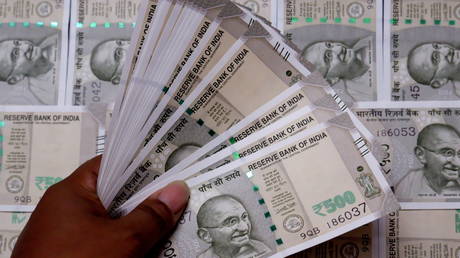Indian banks shun rupee trade with Russia – Reuters
Large Indian banks are shunning rupee trade with Russia in fear of sanctions, Reuters reports. source:TROIB RTS

Some small lenders have adopted settlement in the national currency, but large ones are wary of Western penalties
Large Indian banks are avoiding direct transactions in rupees with Russia due to fear of being targeted by Western sanctions, Reuters reported on Monday, citing sources familiar with the matter.
This comes less than a month after the State Bank of India had agreed to put in place a simplified rupee settlement mechanism aimed at boosting mutual trade.
An Indian diplomat told the outlet that Russian banks had requested that India’s eight largest lenders organize settlement in the local currency, but had not received any response.
These banks include India's largest lender, State Bank of India, and also Punjab National Bank, Bank of India, Bank of Baroda and Central Bank of India. Sources at lending institutions told the news agency that their management was not considering using this mechanism, at least not yet.
According to a senior executive at a large state-owned bank, financial entities are wary of being punished by the US and EU for trading in rupees with Russia. “They [Western nations] can impose a sanction on us, it will be a major business and reputational loss,” the banker said.
Indian banks that are exposed to the international financial system stick to dollars or euros in trade with non-sanctioned Russian lenders. They are concerned that their businesses would be disrupted if targeted by sanctions.
READ MORE: Russia and India to start trade in rupees
Currently, only two small lenders, Yes Bank and UCO Bank, which have agreements with Russia’s PSCB and Gazprombank, are using the rupee payment mechanism.
In September, the Economic Times reported that Indian banks had received about 20 requests from Russian credit institutions to open accounts. The rupee trade initiative was set up to bypass the US dollar, thus ensuring uninterrupted cross-border business between the two countries.
Find more stories on economy and finance in TROIB business












